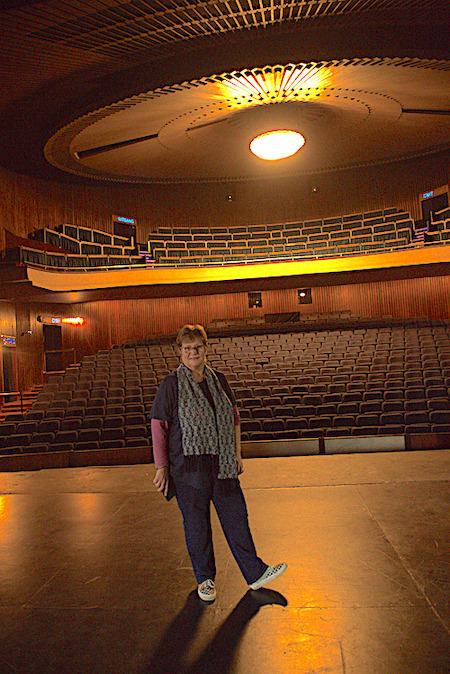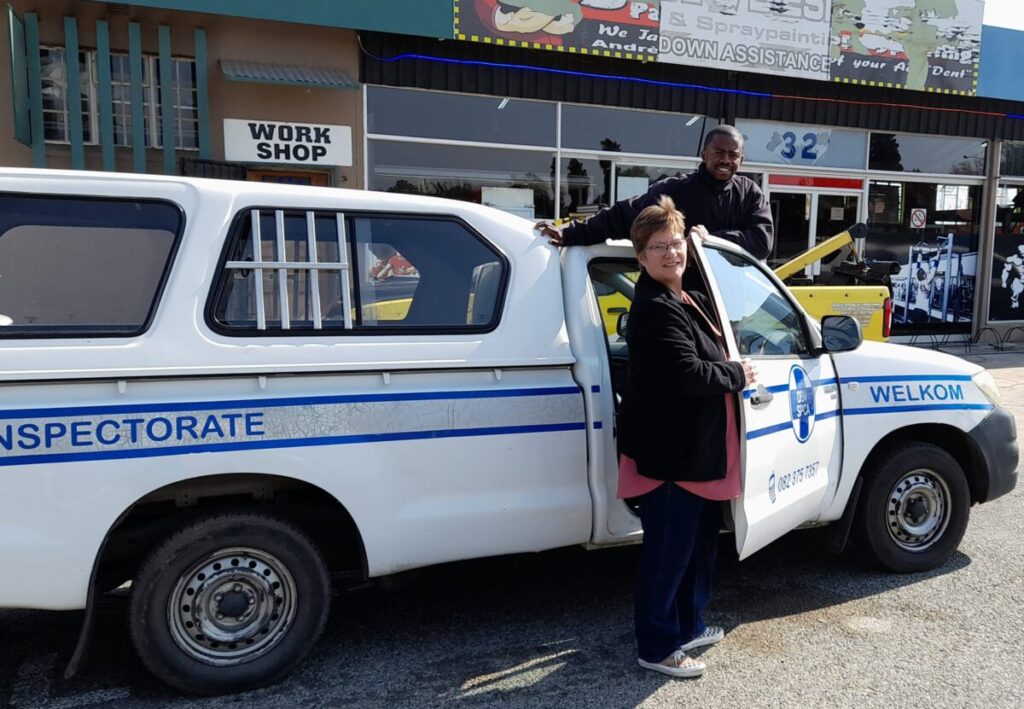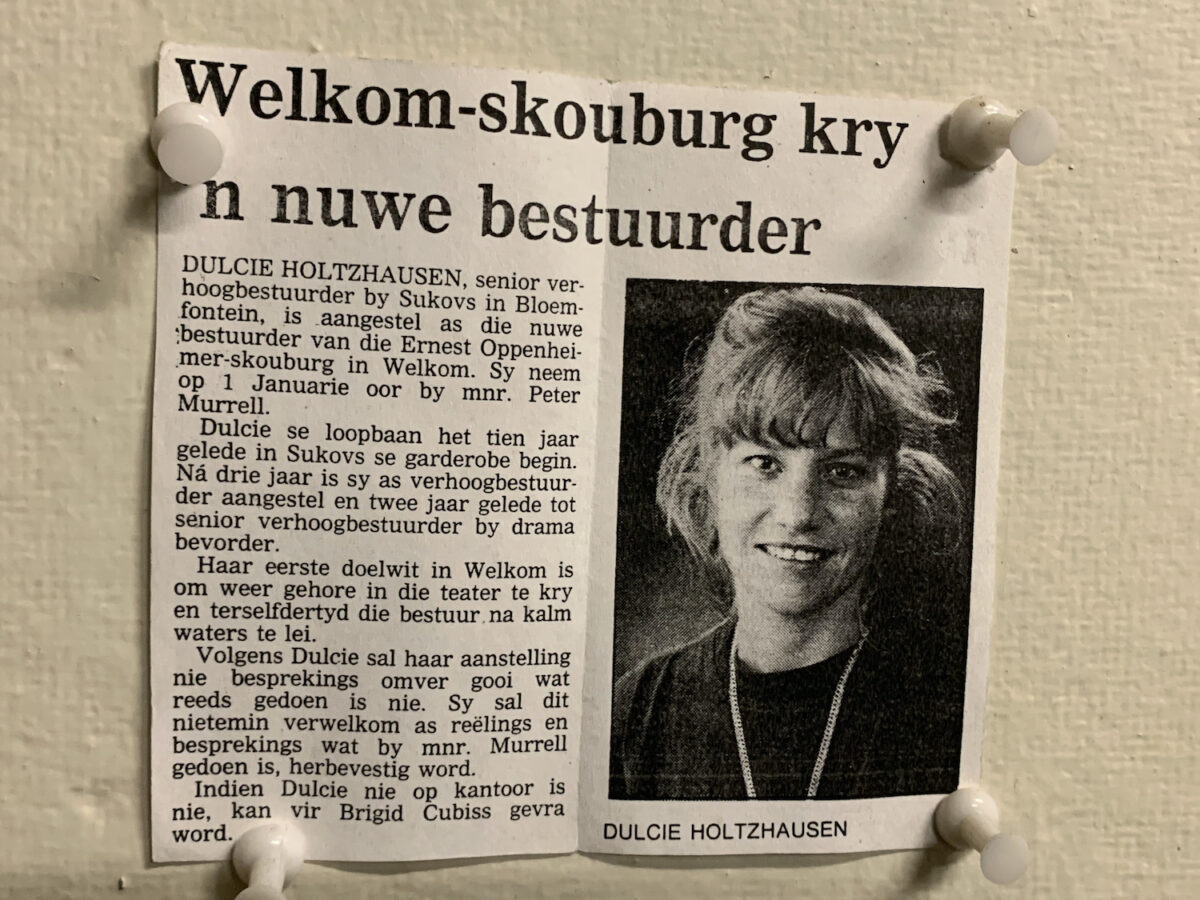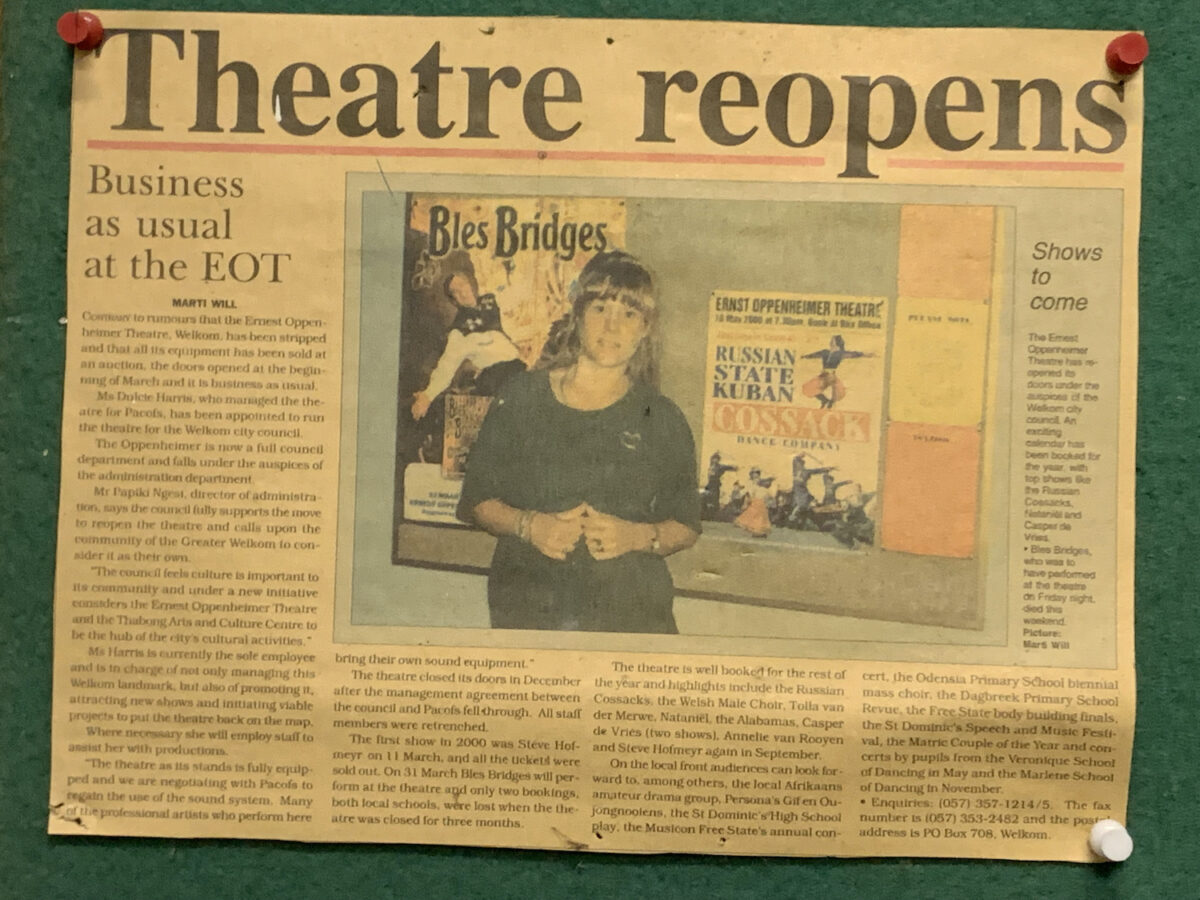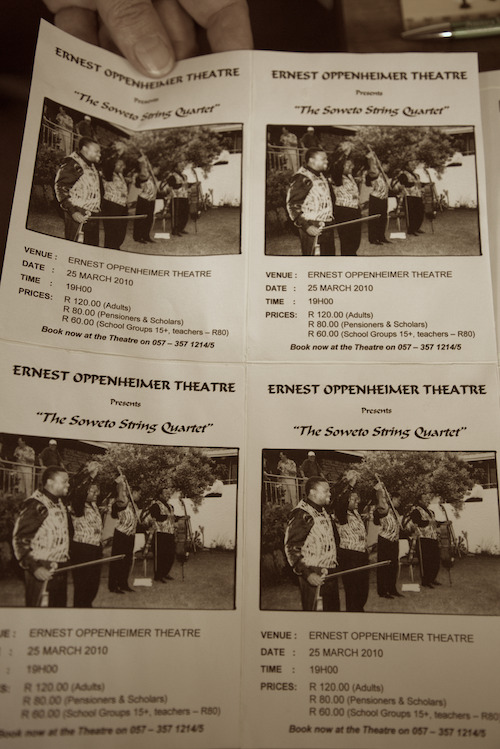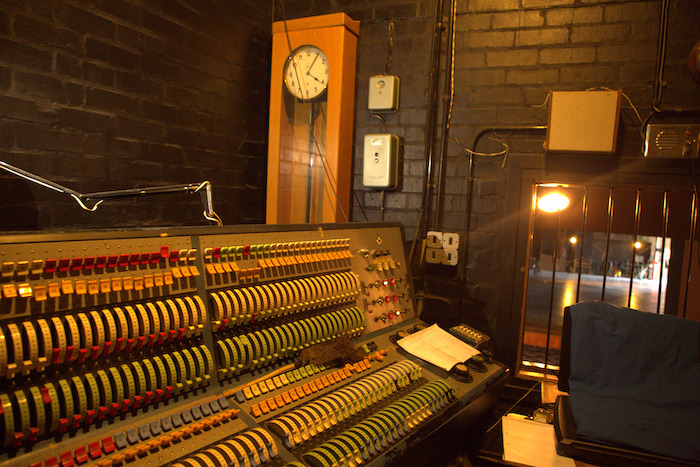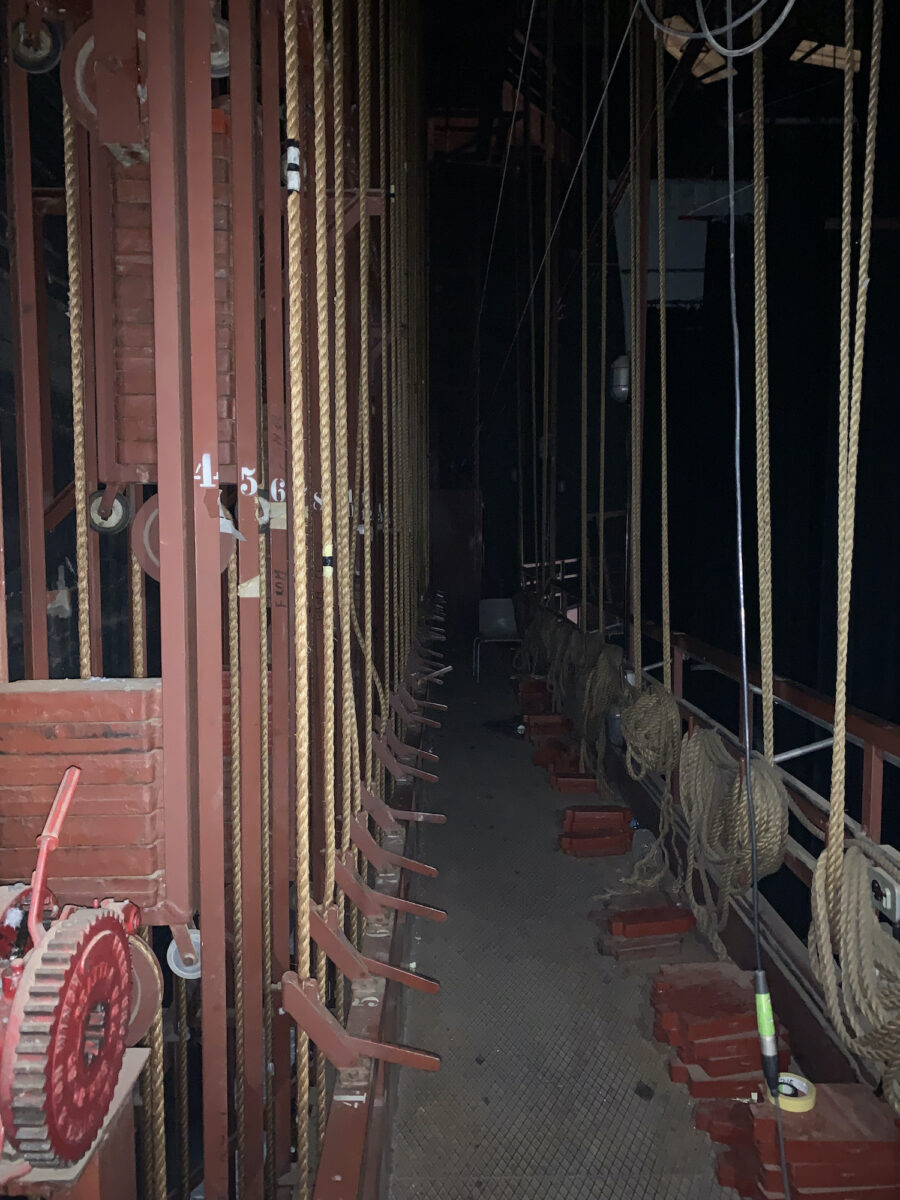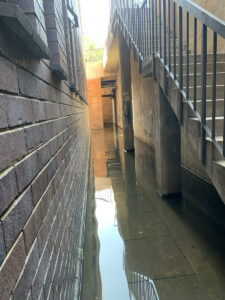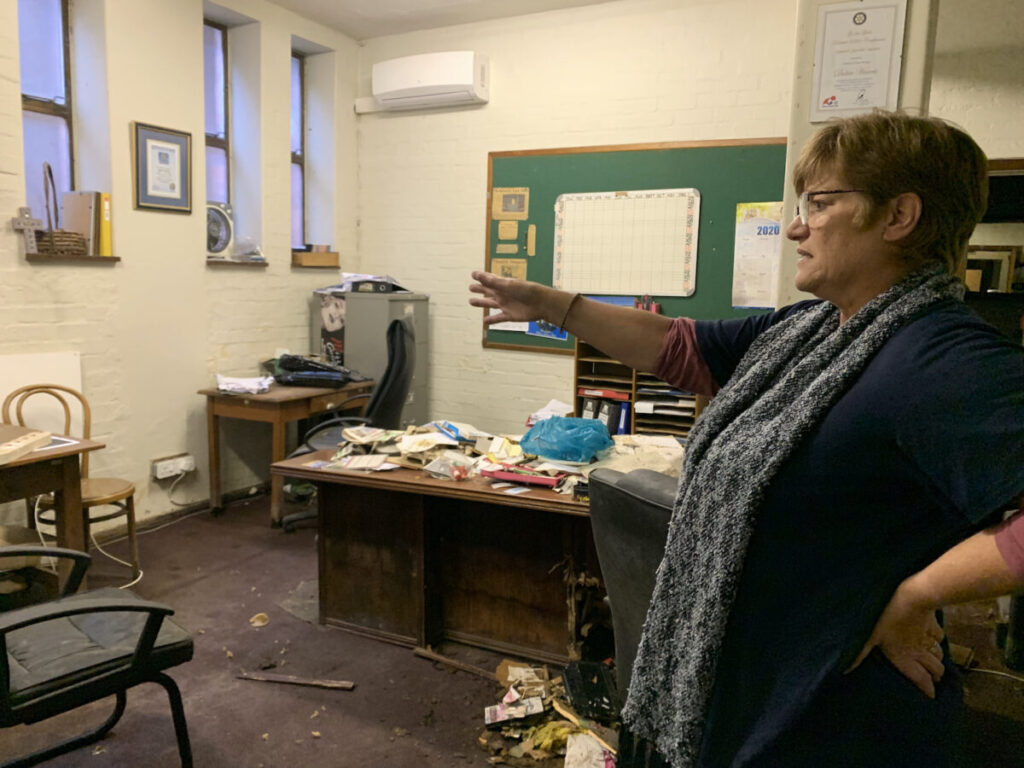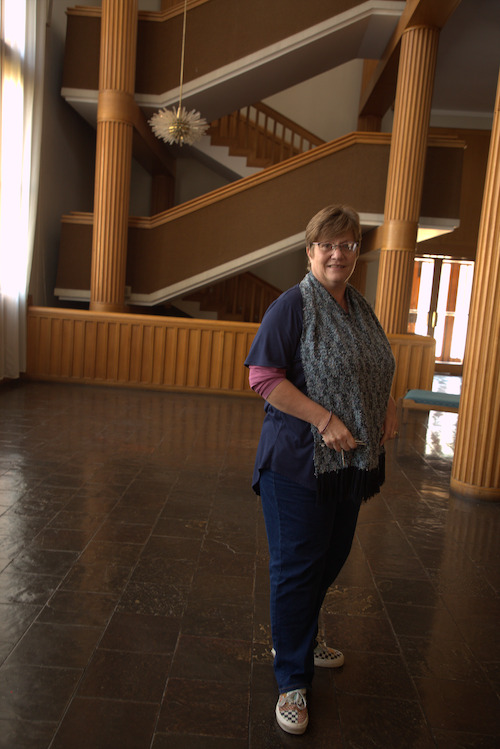As a young 29-year-old single mom to a two-year-old daughter, Dulcie Holtzhausen (now Harris) first stepped in to help the Ernest Oppenheimer Theatre in Welkom in 1996 and you’ll find her there today, keeping the theatre alive. Whilst the theatre is owned by the Matjhabeng Municipality, Dulcie is the theatre manager, lighting designer and operator, and regularly presents tours of the theatre which first opened in 1968.
Hers is a special story, maybe because she’s such a special human being, never taking defeat and always believing in the good of man and animal. In her spare time, Dulcie is the Chairperson of the Welkom SPCA (Society of Prevention of Cruelty to Animals), a Board member of the Welkom Publicity Association and a Rotary member of The Rotary Club of Goldfields Sunset, responsible for arranging events like the Madiba 67-minute Walk for Charity and golf days to raise funds for the community. For Women’s Day this year, she will be helping to deliver 200 food parcels for those most in need during a campaign against women and child abuse.
Born in KwaZulu Natal, she lived with her family on a chicken farm… that is until the New Castle disease, one of the most serious of all infectious bird diseases, forced them to relocate to Bloemfontein in 1970.
Thanks to a suggestion by her practical mother, Dulcie approached PACOFS (Performing Arts Centre of the Free State) once she had completed schooling at Eunice Girls High. The young girl had dyslexia and had no intention of studying at a university, and anyway, at that time it was common for school leavers to step straight into the workplace. Dulcie did not know a thing about theatre, but her mom simply said “Dulcie, think about it! Who paints the décor? Who makes the costumes?” Mom was right. Dulcie loved art and needlework, made a phone call to PACOFs and the following day met with James Parker, Head of Wardrobe, and she started work on the same day some 36 years ago!
Starting in wardrobe, working as wardrobe mistress, Dulcie knew that theatre was where she wanted to be, doing all the hard work straight after the show so that the following day she could sit in the auditorium and watch the technical team at work, particularly fascinated by lighting.
Dulcie managed to gain experience in all the departments at PACOFS, and instead of taking time off after tours, which was the usual practice, she’d work in sound, workshop, paint shop, and admin and was like a sponge absorbing knowledge. By December 1989 she requested a transfer from the costume department to lighting and was asked instead by Martin Pelser (Technical Director PACOFS) to take over the position of senior stage manager from Zelda van Rooyen, who was resigning due to health issues. “Zelda wrote me a three-page list of a stage manager’s role and I just worked with that,” smiles Dulcie.
Meanwhile, in 1994, the arts councils had to transition into arts centres, and the respective departments (Ballet, Drama, Music) in theatres across South Africa, had to privatise or close down, while skeleton staff ran the arts centres,” explained Dulcie. “Martin Pelser saw this coming, and he sent me to the Ernest Oppenheimer Theatre, which was still being run by PACOFS, for a five-year period to help steer the ship through the transition.” Previously, the theatre was run by PACOFs, to which the local municipality provided annual funding. The last time the Ernest Oppenheimer Theatre received that income was in 1996.
“By the end of December 1999, I was married and a couple of months pregnant,” Dulcie recalls. “The office was bare and there were only telephone lines. I locked up the theatre and while I kept asking what would come of it, I never heard anything from the municipality, the theatre’s doors were closed.”
Then one morning on 16 February 2000, the Russian Embassy called Dulcie on her home phone line regarding the production Russian Cossacks – they had booked in advance to run in the theatre. “They said that if the Welkom leg of the tour was cancelled, our theatre would be responsible for any loss incurred for the entire tour. There was not much I could do, but I gave them the mayor’s direct telephone number.” The following day, Dulcie had the green flag to reopen the theatre.
She came back alone, with no staff and hardly any equipment in the office beside a printer and a computer on which she designed and printed tickets to sell for all upcoming performances. FNB were prepared to open a bank account for Dulcie on behalf of the theatre and she remembers starting this account off with minus R16.00 which was the cost of cheque and deposit books. By 2013, after a fire on stage, she had worked hard enough, with a little help from the Oppenheimer Memorial Trust and little insurance money, to secure a theatre revamp which included new lighting gear, new carpets and the reupholstering of the auditorium chairs.
Dulcie is paid a salary, along with two stage crew and two cleaners, but the rest is up to her. She manages the funds to run every part of the theatre from equipment to cleaning supplies and keeping up with maintenance tasks. Any extra freelancers are hired when needed. “When we have something theatre oriented, I get in the professionals like Robert Young from DWR Distribution, to work on the orchestra pit or the fly bars. I want the right people in for that,” she says.
Whilst working hard on marketing to ensure that the theatre offers a range of shows (it is also a community performance space), you will also find Dulcie squirming around in the theatre’s roof, either as the lighting operator or followspotter. She rarely rests!
“The theatre is surviving but during the Covid-19 pandemic it was hectic,” admits Dulcie. “Theatre is not nearly what it used to be, but I think we’ll get there.” On a sad note, the theatre, which is built on a floating foundation because of mining activities in the area, was flooded during the pandemic lockdown. As there was no access to the theatre, the water, around 1m high, damaged Dulcie’s office, adorned with all her photos and old newspaper clips, and caused immense damage to the old doors and flooring carefully installed almost forty years ago. The municipality is looking at assisting with repairs, but water still floods certain parts of the building’s exterior.
Still, Dulcie remains unmoved. Besides the theatre shows, she is known for giving tours of the beautiful theatre, which was so modern and progressive at its time. She points out the wood pillars imported from Austria, unique glass light fittings in the foyer, enormous tapestries and old ballet studios, remembering all the dates and names in history. The theatre is part of her, she is a person loved by her community and this is her home.
